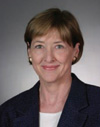
Scott Zajac ADVANTAGE CAPITAL PARTNERS, ST. LOUIS
The Occupy movement’s great unwashed—a term used literally—could profit handsomely by spending a few minutes with Scott Zajac. He just might be able to help get their minds right with this capitalism thing. He’s the managing partner at Advantage Capital Partners in St. Louis, where the focus on bottom-line returns entails more than revenues. “We are proud of our community impact,” Zajac says. “We are what’s known as a ‘double bottom line’ firm—we seek excellent investor returns, and at the same time we focus on the community impact of our investments.”
Stronger communities, after all, mitigate the appeal of anti-capitalist sentiment: “It’s very gratifying to know that my colleagues and I have helped to foster the growth of job-creating businesses here in Missouri, as well as supporting the development of a wide range of positive impacts—from life-saving technologies to environmentally sustainable businesses.”
Missouri “is uniquely positioned to be a national leader for entrepreneurial growth as the nation navigates a deep recession,” Zajac says, citing the assets of work-force quality, top-tier research institutions and universities, central location and low cost of living. Now, then, is the time to be aggressive on public policy issues, he says, such as access to capital and dedication to entrepreneurial development.

Lois Brayfield J. SCHMID & ASSOCIATES, HOLLISTER
State policy wonks trying to figure out how to bolster Missouri’s rural economy could take some lessons from Lois Boyle Brayfield. The Lee’s Summit native relocated to the lakeside burg of Hollister, near Branson and the Arkansas border, after remarrying five years ago. But she’s still going strong with J. Schmid & Associates, a multi-channel boutique agency with clients around the world. The company still maintains its Kansas City office, but Brayfield—a charter member of Ingram’s 40 Under Forty Class, from 1998—finds that technology today makes her just as effective in a small-town setting. That’s good for her business, and good for Hollister: “You bring diversity and expertise to smaller communities that they may not have otherwise,” she says. “I spend my money down here, tithe at my church down here. I’ve always been a big-city girl, but this has given me a new appreciation for different socioeconomic challenges.” There are no advertising agencies in Hollister, she notes, so the skill sets she brings to board service there are qualities rural communities desperately need.
Her two sons are in high school in the Ozarks, where it seems everyone knows everyone. How small is a state with 6 million people? Brayfield believes her husband is related to another 50 Missouri selection this year, Osage Beach physician Buddy Brayfield.

Patricia Breckenridge MISSOURI SUPREME COURT, JEFFERSON CITY
Asked once to describe the source of her own jurisprudence, Patricia Breckenridge said, “My judicial philosophy has been to follow the law, and I think that’s what my record indicates.” It would be tough to argue with the results of that outlook, and from the governor’s mansion in Jefferson City, there seems to have been a shared assessment of her legal competencies through the years. Govs. Kit Bond, John Ashcroft and Matt Blunt all named her to a succession of roles that ended with the Supreme Court before voters rewarded her with a 12-year term that runs through 2020.
Matt Blunt’s appointment made Breckenridge a national figure for a while, as Republicans engaged in the kind of litmus-testing of conservative credentials that often marks their political campaigns—this year’s GOP presidential race being a prime example. But given that she was replacing former Justice Ronnie White on the bench, it’s hard to cast Breckenridge’s addition to the court as anything but a move away from judicial activism.
Breckenridge, whose undergraduate degree from Mizzou was in the decidedly non-legal field of agricultural economics, earned her law degree at Mizzou, and is married to Bryan Breckenridge.

Darwin Hindman FORMER MAYOR, COLUMBIA
Most of the thousands of people who bike the Katy Trail every year have no idea who Darwin Hindman is, but he’s riding along with them. The former mayor of Columbia was a huge proponent of turning the former Missouri-Kansas-Texas Railroad line into a recreational asset that, now 240 miles long, nearly spans the width of Missouri. “So many people regardless of their wealth, race, gender or age enjoy quality activity and fun walking and bicycling on the trail in Missouri’s beautiful outdoors—it is inspiring to see the economic development and favorable attention that the Katy Trail brings to Missouri,” Hindman says.
And, of course, one of those frequent users is Darwin Hindman. “Both bicycling and walking, frequently with my wife and dog,” he says, often making the 28-mile round trip to Rocheport for lunch.
His role in advocating for the trail stems from lessons imparted by his father, “Skippy” Hindman, a professor at the University of Missouri. “He taught me that everyone’s goal is to have a satisfactory life, which results not from things, but the quality of experiences—and quality experiences are not particularly related to cost.” Reading a good book, relishing good music, biking or simply walking are low-cost ways that can disproportionately enrich someone’s life, Hindman says.